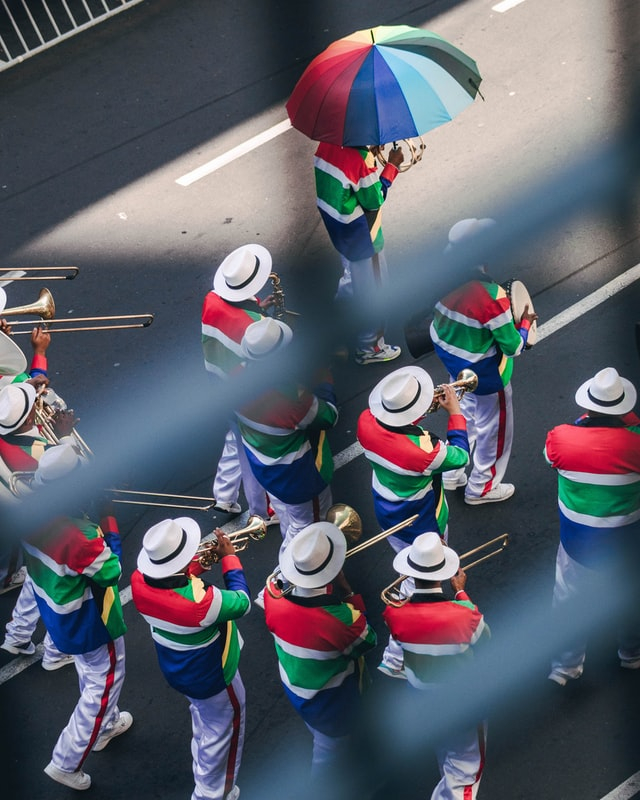The Music Movement Against Apartheid

Throughout the years of apartheid, there were a lot of factors which played a large role in the abolishment of the apartheid regime in South Africa. Apart from a manifestation of ways including boycotts, protests and economic responses to this regime, the music industry explored their form of resistance through music. This article portrays a few of the powerful artists and musicians who depicted the struggle and encouraged the message of freedom.
The retaliation of the apartheid regime through the music industry accounted for the birth of music which raises awareness. This type of music resonated in the hearts and souls of many South Africans, especially those falling victim to the regime. The introduction of this music emphasized the unity and movement of people from South Africa and on an international level. The atmosphere of these songs broke the barriers of restriction of the people in South Africa and allowed for people to feel connected on a universal level.
One of the famous artists of apartheid times is Miriam Makeba. Also nicknamed Mama Africa, she was the voice for change, the voice against the apartheid regime. Through her music, she expressed the injustices and discrimination towards black people in South Africa and educated the world. One of her significantly popular songs, both with the title Qongqothwane and The Click Song, is a Xhosa wedding song. She would usually introduce this song as being typically mispronounced by the white English people, as they were often unfamiliar with the Xhosa language and had difficulty pronouncing the vowels and consonants of the language. Hence, the song became known as The Click Song, highlighting the power of the white people in South Africa during this time; as they had control over the country, they also had control over the traditional names and song. Miriam Makeba lived in exile, a result of her regularly vocally protesting against the racial segregation in South Africa. Although she did not perform the majority of her music in South Africa, it won the hearts and minds of people fighting against the system.
Another prominent artist whose music served as a means of survival through this time of injustice and struggle was Johnny Clegg. He was part of a band called Juluka, which began as a duo with Sipho Mchunu. This band was one of the first prominent bands during the apartheid era which consisted of a white man and a black man. A few years later, the existing band transitioned into their second interracial band, called Savuka. Clegg was known as "Le Zoulou Blanc", a direct French translation meaning the White Zulu. Johnny Clegg’s role during the anti-apartheid movement was through his immense involvement in taking African culture to the stage and performing songs of South African tradition encouraging the message of unity.
Being a band protesting against the system through their music accounted for the police investigations into these bands and the banning of their music on radio stations in South Africa. However, their powerful music portraying the aesthetic appeal of Zulu music with rock style influences, gained worldwide attention. The song ‘Asimbonanga’, meaning "we have not seen him", is a song written about Nelson Mandela, an anti-apartheid activist and former president of South Africa. During this time, images of Mandela were prohibited by the government during his imprisonment. Thus, the song portrays the control of the government and their response to activists protesting the regime. At the time that this song was released, Nelson Mandela was imprisoned at Robben Island, along with other anti-apartheid activists. Today, this song delivers with the same importance of freedom in the country as it did many years ago.
“Gimme Hope Jo’Anna” is a British anti-apartheid song which played a significant role in the music movement against the apartheid system. Eddy Grant wrote and released this song in 1988 during the apartheid regime. Like a majority of the songs released during this era targeting the unjust regime, they were banned by the South African government. This song addresses the city of Johannesburg, a city in South Africa, where symbolic events of the apartheid regime were located. The song speaks about the hope of ‘Jo’Anna,’ however, Eddy Grant is directing his questions and the motives of the song towards the city of Johannesburg. This song emphasizes hope; the light of optimism which shines through this song has impacted the attitudes towards the regime to anyone who listened to the song.
These incredible musicians strived to change their country into one of unity and freedom. Their legacy lives on in South Africa and across the world. Johnny Clegg, Miriam Makeba, Eddy Grant and other musicians apart of the music movement against the Apartheid regime deserve the recognition of their strength and courage, their music continues to empower those listening.







